Episodes
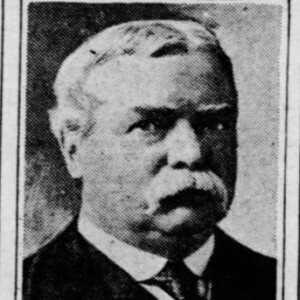
Wednesday Oct 04, 2023
Wednesday Oct 04, 2023
All Bones Considered: Laurel Hill Stories #055, The Supremes, Part 3
James T. Mitchell served as Chief Justice of the Pennsylvania Supreme Court from 1903 to 1910 and was considered an ideal judge. He also amassed a world-class collection of historical engraved portraits.
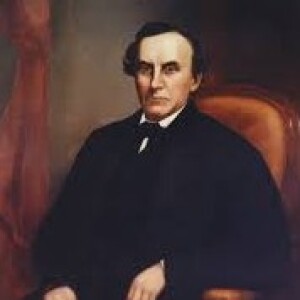
Tuesday Oct 03, 2023
Tuesday Oct 03, 2023
All Bones Considered: Laurel Hill Stories #055, The Supremes, Part 2
George Sharswood served as Dean of the Law School at Penn from 1852 to 1868. He served on the State Supreme Court for many years and as Chief Justice; in 1871 he and a majority ruled against suffragette Carrie Burnham, which denied the vote to women for an additional 48 years.
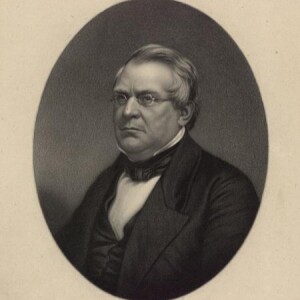
Monday Oct 02, 2023
Monday Oct 02, 2023
All Bones Considered: Laurel Hill Stories #055, The Supremes, Part 1
Robert C. Grier spent 24 years on the US Supreme Court at a critical time (1846-1870) in the country's history. Today we cringe at some of his decisions.

Sunday Oct 01, 2023
Sunday Oct 01, 2023
Robert Cooper Grier was selected for the United States Supreme Court in 1846 to replace another justice who had died 841 days before – the longest gap in the history of the court. He served for nearly a quarter century and voted in many key decisions, including Dred Scott v. Sandford.
George Sharswood was the first dean of the University of Pennsylvania School of Law. While serving as Chief Justice of the Supreme Court of Pennsylvania, he made a decision which probably delayed women’s rights to vote in Pennsylvania by more than 40 years.
James Tyndale Mitchell was also a Chief Justice. He was a superb lawyer and judge but may be remembered more for his giant collections of autographs and portraits of famous people, considered the finest of his day.
William Irwin Schaffer spent two years as state attorney general before he became an Associate Judge on the Pennsylvania Supreme Court. One of his decisions delayed Sunday baseball in Philadelphia by several years.
Grier and Schaffer are buried at Laurel Hill West, Sharswood and Mitchell at Laurel Hill East. They are the topics for All Bones Considered: Laurel Hill Stories #055 for October 2023 – The Supremes.
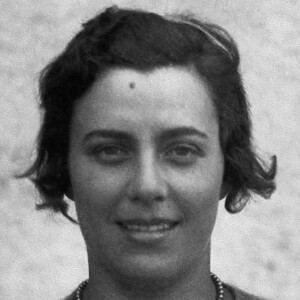
Friday Sep 15, 2023
Friday Sep 15, 2023
Biographical Bytes from Bala: Laurel Hill West Stories #024
Glenna Collett-Vare was one of the giants of women’s golf and the top American player in the 1920s and 30s. She won 49 amateur tournaments between 1921 and 1935. She could hit a ball straight down the fairway nearly 300 yards. She was the first woman to break 80 in the U.S. Women’s Amateur, which she won six times. She is in the golf hall of fame, and the Vare Trophy is awarded annually to the woman professional with the best scoring average. She played into her 80s but never turned professional. In her day, she was "The Female Bobby Jones".
She is buried at Laurel Hill West in a crypt that does not even acknowledge her presence – an unmarked grave.
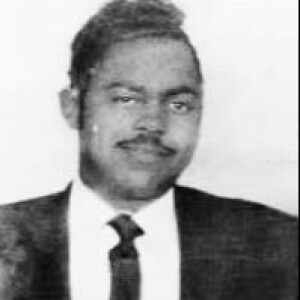
Wednesday Sep 06, 2023
Wednesday Sep 06, 2023
All Bones Considered: Laurel Hill Stories #054: "Hey, I Know That Song", Part 5
Singer / songwriter / A&R man Richard "Richie" Barrett was cremated at Laurel Hill West, but even the Beatles were early admirers of his work.
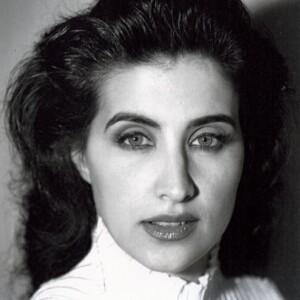
Tuesday Sep 05, 2023
Tuesday Sep 05, 2023
All Bones Considered: Laurel Hill Stories #054: "Hey, I Know That Song", Part 4
Leonard "Hub" Hubbard was founding member of The Roots whom I will cover in full in a later podcast.
Phebe Blessington was an extremely popular local singer who was tragically killed while heading to a gig shortly after her 30th birthday.
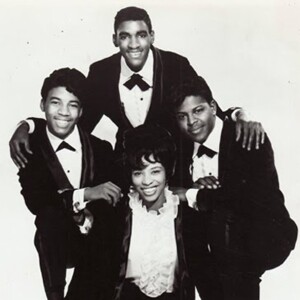
Sunday Sep 03, 2023
Sunday Sep 03, 2023
All Bones Considered: Laurel Hill Stories #054: "Hey, I Know That Song", Part 3
After Brenda Payton was discovered while singing on a street corner, she was soon high on the R&B charts with songs like "Dry Your Eyes" and "Right on the Tip of My Tongue"
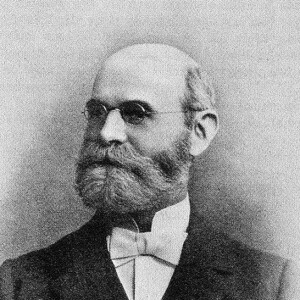
Sunday Sep 03, 2023
Sunday Sep 03, 2023
All Bones Considered: Laurel Hill Stories #054: "Hey, I Know That Song", Part 2
William Kirkpatrick was an Irish-born hymn writer whose Christmas carol you have been singing all your life. It is highly likely you have sung other hymns written by him without knowing the composer.
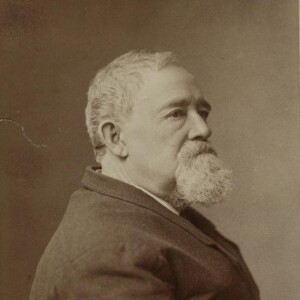
Saturday Sep 02, 2023
Saturday Sep 02, 2023
All Bones Considered: Laurel Hill Stories #054: "Hey, I Know That Song", Part 1
Septimus Winner composed several ear worms you sang as a child or with your children, including "Listen to the Mockingbird" and "Ten Little Indians".

Friday Sep 01, 2023
Friday Sep 01, 2023
Septimus Winner was the composer of several catchy songs you sang as a child or have sung with your children
William Kirkpatrick was a hymn writer whose Christmas carol you have been singing all your life
Brenda Payton was lead singer for the R&B group Brenda and the Tabulations
Phebe Blessington was an up-and-coming singer-songwriter who was killed in an auto accident shortly after her 30th birthday
Singer / songwriter / A&R man Richie Barrett’s final services and cremation were at Laurel Hill West, although he is not buried there.
And yes, I will play you samples of their work, and a lot more. Get ready for ear worms galore on this month's episode of "All Bones Considered: Laurel Hill Stories
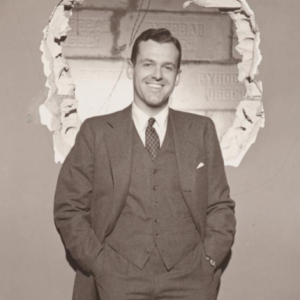
Tuesday Aug 15, 2023
Tuesday Aug 15, 2023
Biographical Bytes from Bala #023
Andy Warhol considered him "the only person in town with glamour." The Philadelphia Art Alliance deemed him "the first gentleman of Philadelphia." Connoisseur Magazine named him one of the top ten art collectors of all time.
When Henry Plumer McIlhenny died in 1986, he left everything - an estimated $100M worth - to the Philadelphia Museum of Art, where he had served for 50 years as curator, trustee and chairman of the board. His collections were housed in both his magnificent Rittenhouse Square townhouse and at Glenveagh in Ireland, the largest privately-owned plot of land in the country. His parties were legendary. His friends were society's giants.
At his death, someone commented "I had always thought that no one was irreplaceable, but Henry is irreplaceable."
Fellow volunteer tour guide and historian Thomas Keels tells you of this remarkable man in the mid-August edition of “Biographical Bytes from Bala: Laurel Hill West Stories.”
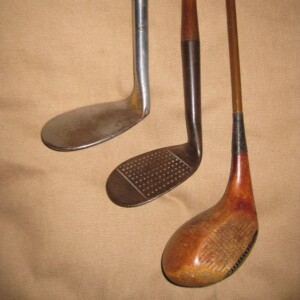
Saturday Aug 05, 2023
Saturday Aug 05, 2023
All Bones Considered: Laurel Hill Stories #053 - Suited to a Tee, part 4
Charles Baily met his final fate on the 4th green of Merion East Cricket Club in 1933
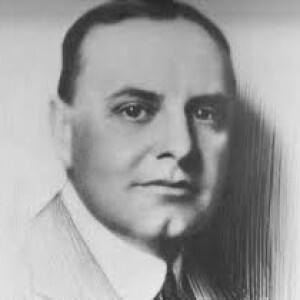
Friday Aug 04, 2023
Friday Aug 04, 2023
All Bones Considered: Laurel Hill Stories #053 - Suited to a Tee, part 3
George Clifford Thomas Jr. designed the original course at Whitemarsh Valley Country Club, outside Philadelphia, and more than twenty courses in California, including Riviera Country Club in Pacific Palisades and Red Hill Country Club in Rancho Cucamonga.
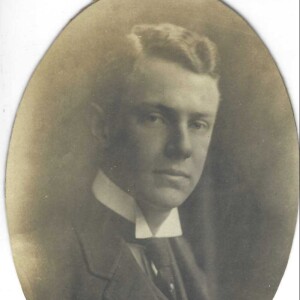
Thursday Aug 03, 2023
Thursday Aug 03, 2023
All Bones Considered: Laurel Hill Stories #053 - Suited to a Tee, part 2
Hugh Wilson was one of six golf architects called "The Philadelphia School". He designed the classic Merion East Course, as well as the final four holes at Pine Valley.
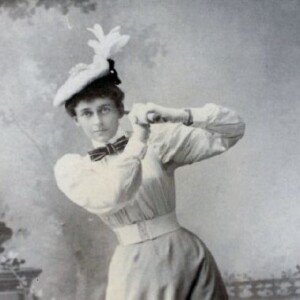
Wednesday Aug 02, 2023
Wednesday Aug 02, 2023
All Bones Considered: Laurel Hill Stories #053 - Suited to a Tee, part 1
Ida Dixon was the first woman golf course architect in the country. Among her work is the Springhaven Club which is still in use.

Tuesday Aug 01, 2023
Tuesday Aug 01, 2023
Philadelphia has been an epicenter for golf since the 1890s. There are dozens of golf courses within an easy drive of the city, and a few in the city itself.
Ida Dixon is today recognized as the first woman golf course architect in the United States.
Hugh Wilson and Charles Thomas were two of the six architects who made up what is called The Philadelphia School. The two of them helped build 4 of the top ranked courses in the country.
Charles Baily met his final destiny on the 4th green of Merion East Cricket Club.
Plus, you’ll learn about cleeks and condors, heroic holes and featheries, Randolph Scott, Mary Queen of Scots, and a golf hole called the “Mae West.”
Even if you’re not a golfer, there are things for you to enjoy on today’s All Bones Considered: Laurel Hill Stories – Suited to a Tee: Golf Course Pioneers.
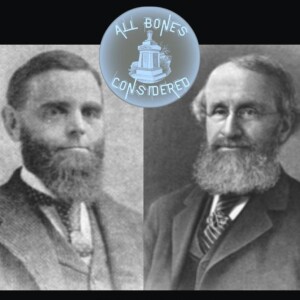
Saturday Jul 15, 2023
Saturday Jul 15, 2023
Biographical Bytes from Bala #022
As transportation in and around Philadelphia improved in the mid 19th century and the population exploded, merchants found more people clamoring for their wares. Two Quakers – Justus Clayton Strawbridge and Isaac Hallowell Clothier – joined forces and opened a small fabric store on the corner of 8th and Market in 1868. By the end of the century, there were thousands of employees and they had expanded severalfold and became the biggest dry goods store in the country. Here is how it happened.
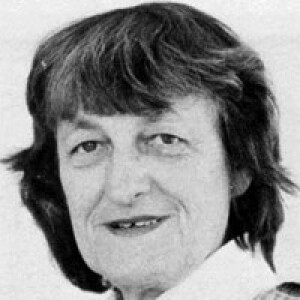
Wednesday Jul 05, 2023
Wednesday Jul 05, 2023
All Bones Considered: Laurel Hill Stories #052 - Reach for the Stars, part 4
Sarah Lee Lippincott, whose first husband was television pioneer Dave Garroway (See All Bones Considered: Laurel Hill Stories #013, On the Tube), became a beloved professor of astronomy and astrometry at Swarthmore University.

Tuesday Jul 04, 2023
Tuesday Jul 04, 2023
All Bones Considered: Laurel Hill Stories #052 - Reach for the Stars, part 3
Photography pioneer William Rau was tapped to be a photographer for the 1874 worldwide evaluation of the Transit of Venus, but most people involved in that venture would admit that photography was useless in capturing new information.
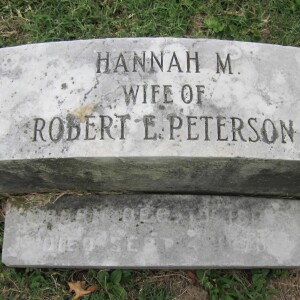
Monday Jul 03, 2023
Monday Jul 03, 2023
All Bones Considered: Laurel Hill Stories #052 - Reach for the Stars, part 2
Hannah Mary Bouvier Peterson was a popular author whose work “Familiar Astronomy” was the best-selling astronomy textbook in the 19th century.

Sunday Jul 02, 2023
Sunday Jul 02, 2023
All Bones Considered: Laurel Hill Stories #052 - Reach for the Stars, part 1
One of America’s Founding Fathers David Rittenhouse was recognized in the colonies as being not only the finest astronomer in the land, but the finest builder of delicate, accurate astronomical equipment.

Saturday Jul 01, 2023
Saturday Jul 01, 2023
Man has been fascinated by the sky for as long as he has walked on earth. Star gazing has been the hobby – and the profession – of millions of people from around the world.
One of America’s Founding Fathers David Rittenhouse was recognized in the colonies as being not only the finest astronomer in the land, but the finest builder of delicate, accurate astronomical equipment.
Hannah Mary Bouvier Peterson was a popular author whose work “Familiar Astronomy” was the best-selling astronomy textbook in the 19th century.
Photography pioneer William Rau was tapped to be a photographer for the 1874 worldwide evaluation of the Transit of Venus, but most people involved in that venture would admit that photography was useless in capturing new information.
Sarah Lee Lippincott, whose first husband was television pioneer Dave Garroway, became a beloved professor of astronomy and astrometry at Swarthmore University.
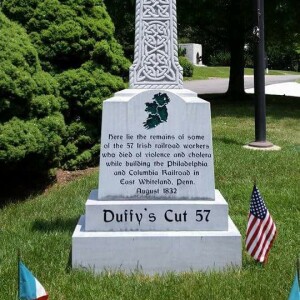
Thursday Jun 15, 2023
Thursday Jun 15, 2023
Biographical Bytes from Bala #021
The first American railroads were built with the blood, tears and sweat of Irish immigrants. An estimated 50,000 died in the process.
In the 3-mph world of 1832, 57 fresh-off-the-boat Irishmen were hired by their countryman Philip Duffy. They were taken to live in a shantytown and work at mile 59 of the Philadelphia and Columbia Railroad, which is now part of SEPTA’s R5 Main Line. Cholera arrived a short time later and within a few weeks all of Duffy’s workers were dead and secretly buried near the Main Line, although ghostly sightings were reported by locals.
180 years later, through the tenacity of two brothers, some of their remains were recovered and identified and relocated to a plot near the gate at Laurel Hill West. Some of the recovered skulls showed evidence of severe trauma. What happened to the Duffy’s Cut 57?
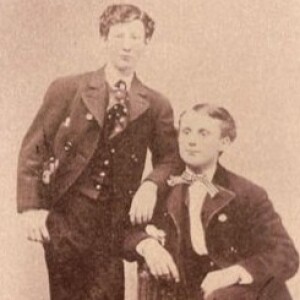
Sunday Jun 04, 2023
Sunday Jun 04, 2023
ABC #051 - Part 4
LT James Hansell French was killed in the San Mateo Mountains of New Mexico territory in 1880 as the Buffalo Soldier troops under his command pursued the great Apache chief Victorio and his warriors.
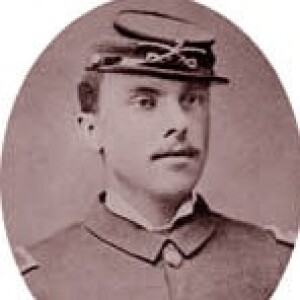
Sunday Jun 04, 2023
Sunday Jun 04, 2023
ABC #051 - Part 5
Jonathan Williams Biddle, whose father Henry Biddle had been killed in the Civil War, lost his life in the Battle of Bear Paw, also in Montana, in 1877 against Chief Joseph and the Nez Perce.
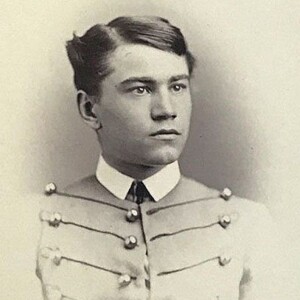
Saturday Jun 03, 2023
Saturday Jun 03, 2023
ABC #051 - Part 3
Benjamin Hubert Hodgson was killed during the 1876 Battle of Little Big Horn in Montana against Cheyenne and Arapaho warriors – historian and fellow Laurel Hill tour guide Thomas Keels tells his story.
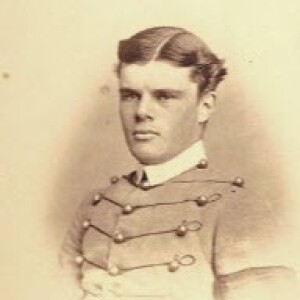
Friday Jun 02, 2023
Friday Jun 02, 2023
ABC #051 - Part 2
George Montgomery Harris died of wounds that he received in the Lava Beds of northern California while battling Captain Jack and the Modoc tribe in 1873.
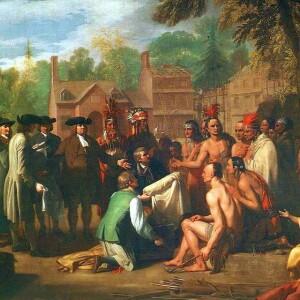
Thursday Jun 01, 2023
Thursday Jun 01, 2023
ABC #051 - Part 1
Indigenous peoples had been part of the Philadelphia landscape since the pre-Colonial days. Their dealings with William Penn and his family left them wondering.

Thursday Jun 01, 2023
Thursday Jun 01, 2023
Interred at Laurel Hill East are four young Philadelphians who died before they reached the age of 30 while battling indigenous people on the frontier.
George Montgomery Harris died of wounds received in the Lava Beds of northern California while battling Captain Jack and the Modoc tribe in 1873.
Benjamin Hubert Hodgson was killed during the 1876 Battle of Little Big Horn in Montana against Cheyenne and Arapaho warriors – fellow Laurel Hill tour guide Tom Keels tells his story.
Jonathan Williams Biddle, whose father Henry Biddle had been killed in the Civil War, lost his life in the Battle of Bear Paw, also in Montana, in 1877 against Chief Joseph and the Nez Perce.
James Hansell French was killed in the San Mateo Mountains of New Mexico territory in 1880 as his Buffalo Soldier troops pursued the great Apache chief Victorio and his warriors.
Note: I acknowledge that many indigenous peoples reject the name "Indian", but most of what I tell you in this podcast occurred at least 140 years ago when the term was used universally and even respectfully. All four of these men have the word "Indian" carved on their gravestones. The podcast title "Killed by Indians" is in quotation marks for this reason.
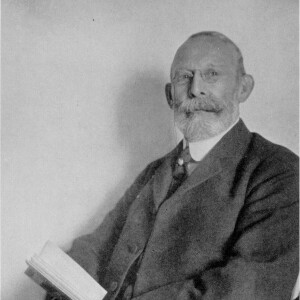
Monday May 15, 2023
Monday May 15, 2023
Biographical Bytes from Bala #020
Charles Benjamin Dudley changed the world we live in when he helped establish the American Society for Testing and Materials. Prior to his work as a chemist with the Pennsylvania Railroad, there was no standardization for the composition of railroad tracks, which led to derailments, deaths, and loss of cargo. Dudley convinced the world that science combined with ingenuity is what all industries needed. Since its founding, ASTM has established more than 13,000 standards across hundreds of companies in dozens of countries.
Fellow Laurel Hill Tour Guide Rich Wilhelm tells Dudley’s story and explain why he is the right man to tell it.
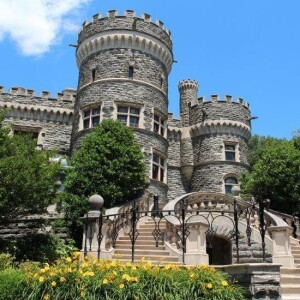
Wednesday May 03, 2023
Wednesday May 03, 2023
ABC 050 - Part 2
William Welsh Harrison was a moneyed man due to America’s sweet tooth – he made a fortune as a sugar manufacturer. Part of his wealth went to build the family home, Grey Towers Castle in Glenside. His former home now serves as administrative offices for Arcadia University, but his presence is still felt on the property. Apparently, the castle and other campus buildings are haunted.
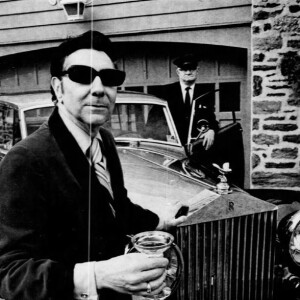
Tuesday May 02, 2023
Tuesday May 02, 2023
ABC #050 - Part 1
George Gordon Meade Easby, a wealthy and eccentric character named after his great grandfather, lived in a Chestnut Hill mansion called Baleroy for most of his 87 years. He didn’t mind sharing the space with phantom apparitions, which included his younger brother, his mother, Thomas Jefferson, and a malevolent spirit named “Amanda”, along with several others.

Monday May 01, 2023
Monday May 01, 2023
George Gordon Meade Easby, a wealthy and eccentric character named after his great grandfather, lived in a Chestnut Hill mansion called "Baleroy" for most of his 87 years. He didn’t mind sharing the space with phantom apparitions, including his younger brother, his mother, Thomas Jefferson, and a malevolent spirit named “Amanda” along with several others.
William Welsh Harrison was a moneyed man due to America’s sweet tooth – he made a fortune as a sugar manufacturer. Part of his wealth went to build the family home, Grey Towers Castle in Glenside. His former home now serves as administrative offices for Arcadia University, but his presence is still felt on the property. Apparently, the castle and other campus buildings are haunted.
I will tell you their stories and let you decide about their authenticity on this month’s episode of All Bones Considered: Laurel Hill Stories – A Couple of Haunted Houses: Baleroy & Grey Tower Castle
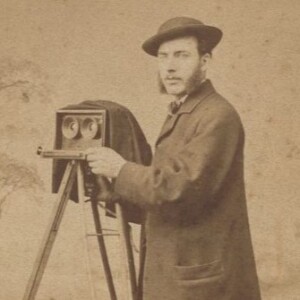
Saturday Apr 15, 2023
Saturday Apr 15, 2023
Biographical Bytes from Bala #019
John Carbutt is the forgotten pioneer of Philadelphia photography. Born in England, he spent the first years of his career as a railroad photographer in Canada and the American West. After settling in Mount Airy and opening a factory in Wayne Junction, Carbutt was the first person in the country to commercially produce dry photographic plates, the first to produce sheets of celluloid coated with photographic emulsion for making celluloid film, and the first to make commercially available dry plates for x-rays. Around 1890 he made film 35 mm width for the Kinetoscope, which set the 35 mm film standard for motion picture cameras and still cameras. At the time of his death in 1905, he was working on a method to produce color film. John Carbutt is buried in an unmarked grave at Laurel Hill West.
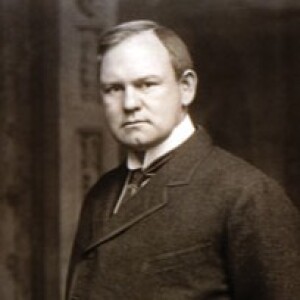
Tuesday Apr 04, 2023
Tuesday Apr 04, 2023
ABC #049 - Part 3
Joseph Miller Huston was an up-and-coming architect who got the plum job of designing Pennsylvania’s State Capitol; instead of leading him to even bigger jobs, it became his professional downfall.
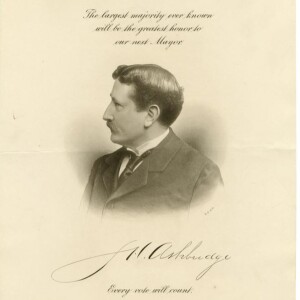
Monday Apr 03, 2023
Monday Apr 03, 2023
ABC #049 - Part 2
Samuel "Stars and Stripes" Ashbridge would give a patriotic speech at the drop of a hat and was elected Philadelphia’s mayor in 1899; he left office four years later a rich man. Fellow tour guide and Philadelphia author and historian Thomas Keels tells you his story.
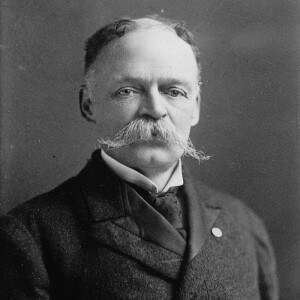
Sunday Apr 02, 2023
Sunday Apr 02, 2023
ABC #049 - Part 1
J. Edward "Gas" Addicks made his fortune in the gas industry, but decided he wanted to be a United States Senator; he spent much of his wealth in a fruitless attempt at achieving his goal.

Saturday Apr 01, 2023
Saturday Apr 01, 2023
J. Edward "Gas" Addicks made his fortune in the gas industry, but decided he wanted to be a United States Senator; he spent much of his wealth in a fruitless attempt at achieving his goal.
Samuel "Stars and Stripes" Ashbridge would give a patriotic speech at the drop of a hat and was elected Philadelphia’s mayor in 1899; he left office four years later a rich man. Fellow tour guide and Philadelphia author and historian Tom Keels tells you his story.
Joseph Miller Huston was an up-and-coming architect who got the plum job of designing Pennsylvania’s State Capitol; instead of leading him to even bigger jobs, it became his professional downfall.
These three men interred at Laurel Hill are remembered today for their graft and dishonesty in a city that muckraking journalist Lincoln Steffens called "corrupt but content." Learn about their crimes and punishments.
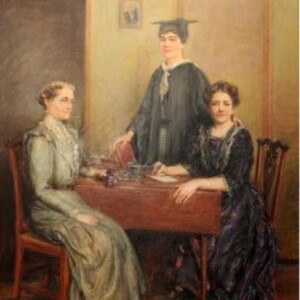
Wednesday Mar 15, 2023
Wednesday Mar 15, 2023
Biographical Bytes from Bala #018
Three Quaker sisters – Hannah, Elizabeth, and Katharine Shipley – decided to start a school. Not another finishing school where girls learned to cook and crochet and behave in society, but a rigorous academic school specifically to train girls in languages and the sciences so they could get into Bryn Mawr and other colleges that were springing up for women in the late 19th century. In this podcast, you will learn about the evolution of girls’ education from before the founding of the country, and some special personalities that populated the Shipley School for its first 75 years.
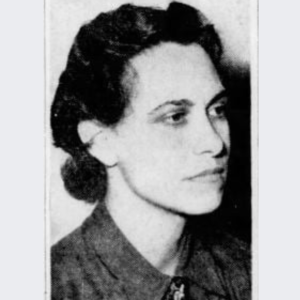
Saturday Mar 04, 2023
Saturday Mar 04, 2023
ABC #048 - Part 3
Elizabeth Head Fetter, older sister to maverick inventor Howard Head, was writing under the pen name of Hannah Lees about topics like masturbation and women’s extra-marital affairs in the prudish 1940s, several years before the Kinsey Report was released.
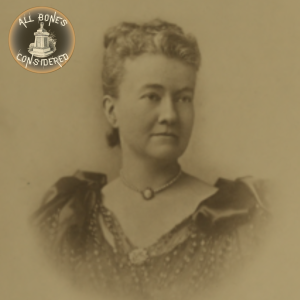
Friday Mar 03, 2023
Friday Mar 03, 2023
ABC #048 - Part 2
Sara Yorke Stevenson was a self-trained Egyptologist, a founder of the Penn Museum, a leader in women’s rights, and a popular newspaper columnist who gained respect from colleagues around the world – her story is told by fellow Laurel Hill Cemetery docent Pat Rose.
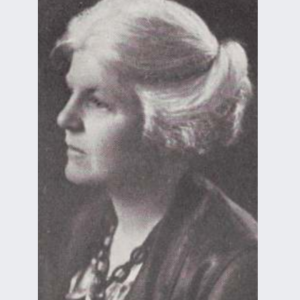
Thursday Mar 02, 2023
Thursday Mar 02, 2023
ABC #048 - Part 1
Dr. Nellie Neilson was one of the best – and best known – Medieval history scholars in the world, but she struggled to climb every rung to the top during her long career.

Wednesday Mar 01, 2023
Wednesday Mar 01, 2023
March is Women’s History Month.
Dr. Nellie Neilson was one of the best – and best known – Medieval history scholars in the world, but she struggled to climb every rung to the top during her long career.
Sara Yorke Stevenson was a self-trained Egyptologist, a founder of the Penn Museum, a leader in women’s rights, and a popular newspaper columnist who gained respect from colleagues around the world – her story is told by fellow Laurel Hill Cemetery docent Pat Rose.
Elizabeth Head Fetter, older sister to maverick inventor Howard Head, was writing under the pen name of Hannah Lees about topics like masturbation and women’s extra-marital affairs in the prudish 1940s, several years before the Kinsey Report was released.
These three remarkable women shattered many glass ceilings in their long careers. I hope you enjoy their stories.
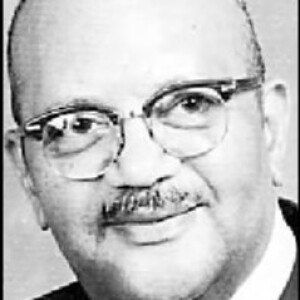
Wednesday Feb 15, 2023
Wednesday Feb 15, 2023
Biographical Bytes from Bala #017
Raphael Coel was a World War II veteran and insurance executive. His wife Julia was a lifelong swimmer who served as the first Black female lifeguard for the City of Philadelphia. They serve as an anchor for this month's "Biographical Bytes from Bala." If you are White, learn what it was like to attempt to “Swim While Black” in the United States. If you are Black, you already know.
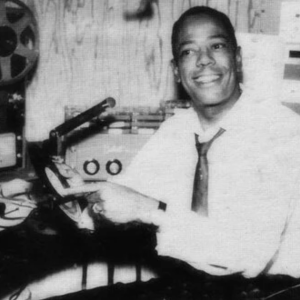
Saturday Feb 04, 2023
Saturday Feb 04, 2023
ABC #047 - Part 3
Douglas “Jocko” Henderson was one of the top deejays on the East Coast, introduced Little Stevie Wonder to the Apollo Theater audience, and is considered by many to be the first “Rap MC” from Philadelphia.
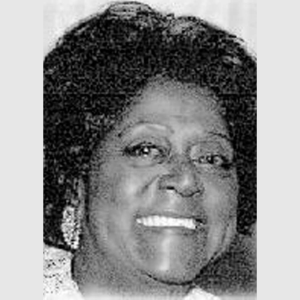
Friday Feb 03, 2023
Friday Feb 03, 2023
ABC #047 - Part 2
Barbara Blackshear rose from working as a “computer” who helped produce the legendary Xerox 8010 “Star” to become vice-president of strategic planning for the company.
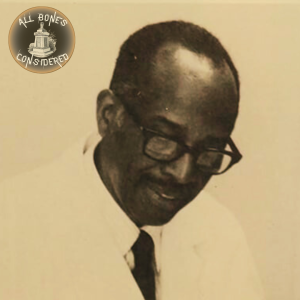
Thursday Feb 02, 2023
Thursday Feb 02, 2023
ABC #047 - Part 1
Dr. James Alexander Batts was an early champion of improving prenatal care for Philadelphia’s African American population.

Wednesday Feb 01, 2023
Wednesday Feb 01, 2023
February is Black History Month. All Bones Considered: Laurel Hill Stories gives you Three More Black Trailblazers.
Dr. James Alexander Batts was an early champion of improving prenatal care for Philadelphia’s African American population.
Barbara Blackshear rose from working as a “computer” and helping produce the legendary Xerox 8010 “Star” to become vice-president of strategic planning for the company.
Douglas “Jocko” Henderson was one of the top deejays on the East Coast, introduced Little Stevie Wonder to the Apollo Theater audience, and is considered by many to be the first “Rap MC” from Philadelphia.
All three of these Black pioneers are interred at Laurel Hill West.
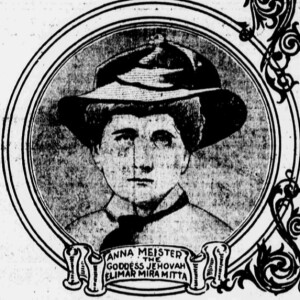
Sunday Jan 15, 2023
Sunday Jan 15, 2023
Biographical Bytes from Bala #016
Anna Meister was a Swiss immigrant in the 1850s who declared she was actually the third person of the Christian trinity and changed her name to Jehovah Elimar Mira Mitta. She had a following for many decades, even years after she died. Today you will hear the story of this bizarre religious cult from South Philadelphia on Biographical Bytes from Bala: J. Elimar Mira Mitta: A Cult of One’s Own.
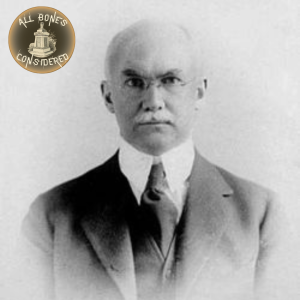
Wednesday Jan 04, 2023
Wednesday Jan 04, 2023
All Bones Considered #046, Part 3
Dr. Samuel McClintock Hamill was one of the most prominent pediatricians in the country, but early in his career he had conducted controversial experiments on orphans and abandoned children, some of whom were left with permanently damaged eyesight.
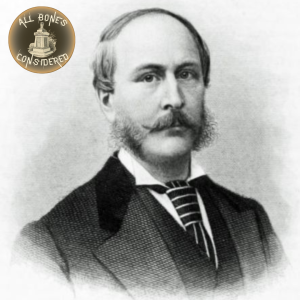
Tuesday Jan 03, 2023
Tuesday Jan 03, 2023
All Bones Considered #046 - Part 2
Dr. William Henry Pancoast was a famed surgeon who performed the post-mortem examination on the 19th century conjoined twins, Chang and Eng Bunker, the original “Siamese” twins. The same year he artificially impregnated a woman who had a sterile husband, but without her knowledge or permission.

Monday Jan 02, 2023
Monday Jan 02, 2023
All Bones Considered #046, Part 1
Dr. George McClellan, father of the famed Civil War Union general, was founder of Thomas Jefferson medical school, but annoyed his colleagues so much he was expelled from the board of the school he had created.

Sunday Jan 01, 2023
Sunday Jan 01, 2023
Dr. George McClellan, father of the famed Civil War Union general, was founder of Thomas Jefferson medical school, but annoyed his colleagues so much he was expelled from the board of the school he had created.
Dr. William Henry Pancoast was a famed surgeon who performed the post-mortem examination on the 19th century conjoined twins, Chang and Eng Bunker, the original “Siamese” twins. The same year he artificially impregnated a woman who had a sterile husband, but without her knowledge or permission.
Dr. Samuel McClintock Hamill was one of the most prominent pediatricians in the country, but early in his career he had conducted controversial experiments on orphans and abandoned children, some of whom were left with permanently damaged eyesight.
These three physicians are the topics of today’s edition of All Bones Considered: Laurel Hill Stories – Father of American Medicine, Part III – Some Ethical Dilemmas.
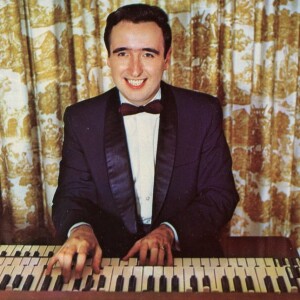
Sunday Dec 18, 2022
Sunday Dec 18, 2022
Biographical Bytes from Bala: Laurel Hill West Stories #015 - Pulling Out All the Stops - The Organ Episode
Part 3: Larry Ferrari
Lazarus "Larry" Ferrari was a fixture on Philadelphia's Sunday morning television screens for decades. Anyone who encountered him had essentially the same thought: "What a nice man!".
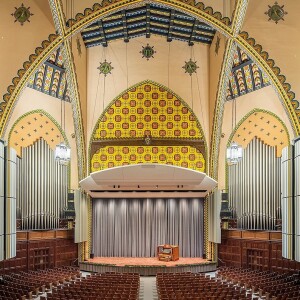
Saturday Dec 17, 2022
Saturday Dec 17, 2022
Biographical Bytes from Bala: Laurel Hill West Stories #015 - Pulling Out All the Stops - The Organ Episode
Part 2: The Curtis Organ
The story of the Irvine Auditorium is very straightforward, but campus legends have given a certain mystical pique to this Gothic structure, and the organ donated by Cyrus H.K. Curtis has only added to its mystique.
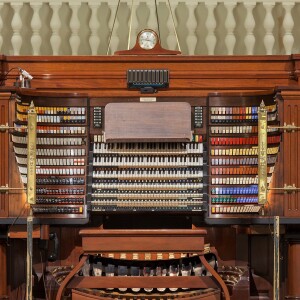
Friday Dec 16, 2022
Friday Dec 16, 2022
Biographical Bytes from Bala: Laurel Hill West Stories #015 - Pulling Out All the Stops - The Organ Episode
Part 1: The Wanamaker Organ
The world's largest playable organ is in the Wanamaker Building next to City Hall. It contains a staggering 28,750 pipes in 464 ranks controlled by 6 manuals. Free concerts are offered twice daily to any who wish to listen.
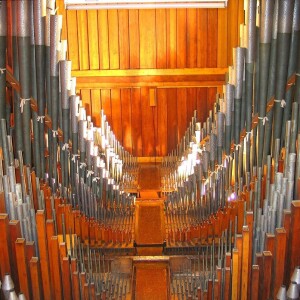
Thursday Dec 15, 2022
Thursday Dec 15, 2022
Biographical Bytes from Bala #015
The Wanamaker Organ is the largest playable musical instrument in the world and sits in Center City Philadelphia; there are several Laurel Hill connections.
William B. Irvine left his estate to the University of Pennsylvania but did not know they would use it to build an auditorium named for him, designed by architect Horace Trumbauer. The magazine publisher Cyrus Curtis donated an organ. All three of these men are at Laurel Hill West.
For more than 40 years, organist Larry Ferrari kept Philadelphians company on Sunday mornings by playing popular music on his television show. Larry is also at Laurel Hill West.
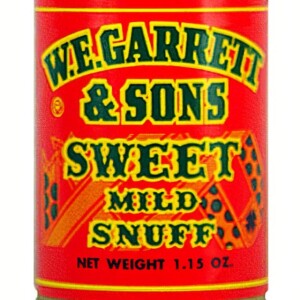
Monday Dec 05, 2022
Monday Dec 05, 2022
All Bones Considered: Laurel Hill Stories #045: Stogies, Coffin Nails & Spittoons, part 4
Henrietta Garrett married into millions. Snuff manufacturer Walter Garrett fell in love with Henrietta on first meeting, even though they were from opposite side of the tracks. The marriage was strong and Walter's death left her a very rich widow. Years later when Henrietta died, nobody could find her will. "Long lost relatives" appeared out of nowhere. It took years to settle the estate.
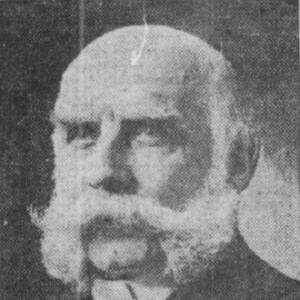
Sunday Dec 04, 2022
Sunday Dec 04, 2022
All Bones Considered: Laurel Hill Stories #045: Stogies, Coffin Nails & Spittoons, part 3
Caleb Milne was a Scottish immigrant who made his fortune in textiles. He rented a floor to a cigar maker, who had a habit of hiring immigrant girls who spoke no English. A fire "false alarm" panicked the girls, who stampeded the stairwells. Many died.
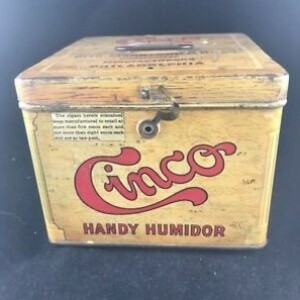
Saturday Dec 03, 2022
Saturday Dec 03, 2022
All Bones Considered: Laurel Hill Stories #045: Stogies, Coffin Nails & Spittoons, part 2
Otto Eisenlohr and his brother were German immigrants who learned the tobacco business. Their 5-cent cigar 'Cinco' was sold at every cigar stand in the country, and they got quite rich.
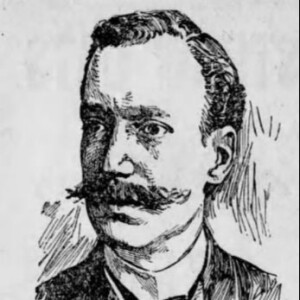
Friday Dec 02, 2022
Friday Dec 02, 2022
All Bones Considered: Laurel Hill Stories #045: Stogies, Coffin Nails & Spittoons, part 1
Juan Portuondo was a Cuban immigrant who learned the craft of cigar making from his father. His cigars were always of the highest quality and he was constantly swatting away competition that tried to take advantage of his name.

Thursday Dec 01, 2022
Thursday Dec 01, 2022
At one time, there were more than 900 cigar makers in Philadelphia who made a sizable portion of the 7 billion cigars sold every year in the United States.
Cuban native Juan Portuondo featured a top-quality cigar that was copied by many.
German American Otto Eisenlohr and his brothers made one of the bestselling fiver-centers in the country, the ubiquitous 'Cinco'.
Caleb J. Milne rented three floors of his Washington Avenue factory to a cigar company that illegally hired immigrant girls; a fire false alarm panicked them into a stampede and a stairwell of death.
Walter Garrett made a fortune in the snuff business which he left to his beloved wife Henrietta. But when Henrietta died more than three decades later, nobody could find her will and literally tens of thousands of people tried to claim her fortune as their own.
Four stories of tobacconists and their wares in the December edition of "All Bones Considered: Laurel Hill Stories."
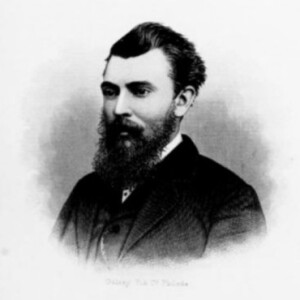
Tuesday Nov 15, 2022
Tuesday Nov 15, 2022
Biographical Bytes from Bala #014
What do baseball Hall-of-Famers Frank Robinson and Willie Stargell, a library in Northeast Philadelphia, the towns of Radnor and Pottstown, Pennsylvania, a bed and breakfast in Tennessee, and the Wills Eye Hospital have in common? The thread that connects these disparate entities is Bushrod Washington James, a Philadelphia physician and philanthropist who is interred at Laurel Hill West. Find out why his name is quietly known across the country in this month's episode of Biographical Bytes from Bala: Laurel Hill West Stories.
Join our email list to get the latest on episode releases, special events, and more: http://eepurl.com/idNN1X
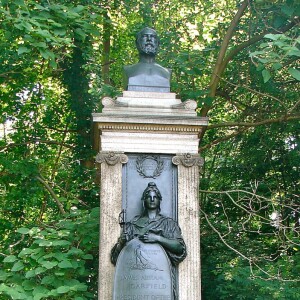
Saturday Nov 05, 2022
Saturday Nov 05, 2022
All Bones Considered: Laurel Hill Stories #044 - Sam Randall, Dr. D. Hayes Agnew, Dr. C.K. Mills, and the Garfield Memorial: Laurel Hill & Some James Garfield Connections, part 4
Many familiar names from Laurel Hill were involved in the design, construction, and dedication of the memorial to the assassinated President that was dedicated in 1896 - 15 years after the assassination.
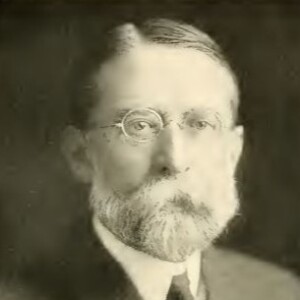
Friday Nov 04, 2022
Friday Nov 04, 2022
All Bones Considered: Laurel Hill Stories #044 - Sam Randall, Dr. D. Hayes Agnew, Dr. CK Mills, and the Garfield Memorial: Laurel Hill & Some James Garfield Connections, part 3
Local anatomist Dr. Charles K. Mills, MD, performed autopsy on the assassin Charles Guiteau. Parts of his brain ended up in the Mütter Museum.
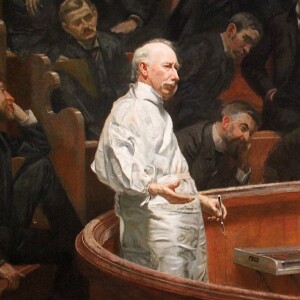
Thursday Nov 03, 2022
Thursday Nov 03, 2022
All Bones Considered: Laurel Hill Stories #044 - Sam Randall, Dr. D. Hayes Agnew, Dr. CK Mills, and the Garfield Memorial: Laurel Hill & Some James Garfield Connections, part 2
Dr. D. Hayes Agnew, MD, learned his craft well while caring for wounded soldiers during the Civil War. He was one of the first to be summoned to the President's after when he was shot
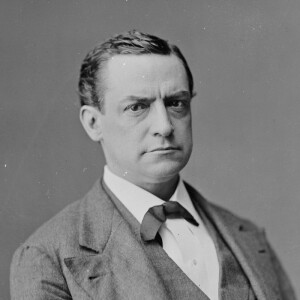
Wednesday Nov 02, 2022
Wednesday Nov 02, 2022
All Bones Considered: Laurel Hill Stories #044 - Sam Randall, Dr. D. Hayes Agnew, Dr. CK Mills, and the Garfield Memorial: Laurel Hill & Some James Garfield Connections, part 1
Samuel Jackson Randall defeated Garfield three times for the position of Speaker of the House until Garfield leapfrogged him to become the 1880 candidate.

Tuesday Nov 01, 2022
Tuesday Nov 01, 2022
All Bones Considered: Laurel Hill Stories #044
James Abram Garfield was the 20th President of the United States, a “dark horse” candidate in the 1880 election and the only sitting member of the house to ever be elected to the highest office in the land. His time as president was short, and four months into his term he was shot by a crazed office seeker in Washington. After lingering for 10 weeks, he died in New Jersey. What are his Laurel Hill connections?
Philadelphia’s Samuel Jackson Randall defeated Garfield for Speaker of the House three times before Garfield leapfrogged him to become President.
University of Pennsylvania’s Dr. David Hayes Agnew, probably the best surgeon in the country, was summoned to Garfield’s bedside as a consultant after he was shot.
Penn’s Dr. Charles Karsner Mills testified against Garfield’s assassin Charles Guiteau and then assisted in Guiteau’s autopsy.
Numerous Laurel Hill residents were involved in the grand unveiling of the Garfield Memorial in 1896. You have probably passed it dozens of times along Kelly Drive.
Join our email list to get the latest on episode releases, special events, and more: http://eepurl.com/idNN1X

Saturday Oct 15, 2022
Saturday Oct 15, 2022
Biographical Bytes from Bala #013
Who doesn’t love ice cream? Philadelphia has made huge contributions to the history of this delectable warm weather treat. If you’re from the area, you grew up with Bassetts and Breyers; maybe you got some nonpareils or sprinkles on your soft serve; or you looked forward to going into a center city drug store so you could sit at the counter and have an ice cream float. All of these have a Quaker City connection – I will talk about them and more today on Biographical Bytes from Bala: Laurel Hill West Stories – Every Brilliant Thing: Ice Cream and Laurel Hill
Join our email list to get the latest on episode releases, special events, and more: http://eepurl.com/idNN1X
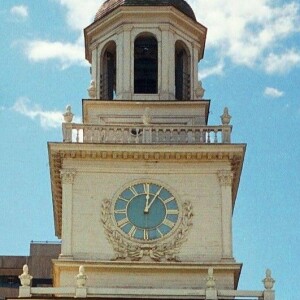
Wednesday Oct 05, 2022
Wednesday Oct 05, 2022
All Bones Considered: Laurel Hill Stories #043: Henry & Thomas Voigt, Isaiah Lukens & Henry Seybert – Tick Tock, Clocks and Watches, part 1, section 4
Henry Seybert took the money left him by his father Adam and had a clock and a bell built for Independence Hall for the 1876 Centennial Celebration. Almost 150 years later, they still stand.
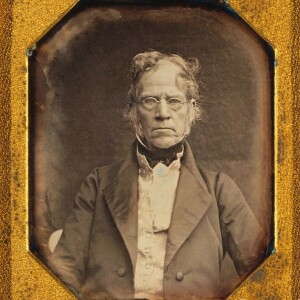
Tuesday Oct 04, 2022
Tuesday Oct 04, 2022
All Bones Considered: Laurel Hill Stories #043: Henry & Thomas Voigt, Isaiah Lukens & Henry Seybert – Tick Tock, Clocks and Watches, part 1, section 3
Isaiah Lukens not only built clocks that can still be seen at The Athenaeum and the Germantown City Hall, but he also built an air gun that may have been used by Lewis & Clark during their expedition.
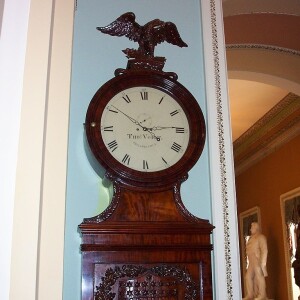
Monday Oct 03, 2022
Monday Oct 03, 2022
All Bones Considered: Laurel Hill Stories #043: Henry & Thomas Voigt, Isaiah Lukens & Henry Seybert – Tick Tock, Clocks and Watches, part 1, section 2
Henry Voigt built a special clock for Thomas Jefferson that he used for his astronomical experiments until the day he died. You can see clocks made by Voigt both at Monticello and in the US Senate.
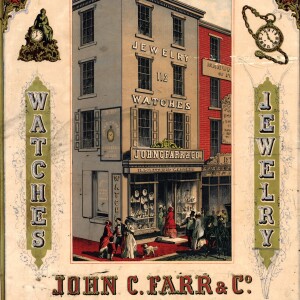
Sunday Oct 02, 2022
Sunday Oct 02, 2022
All Bones Considered: Laurel Hill Stories #043: Henry & Thomas Voigt, Isaiah Lukens & Henry Seybert – Tick Tock, Clocks and Watches, part 1, section 1
I talk about timekeeping in Philadelphia, from sundials and hourglasses to the clock on Independence Hall. Philadelphia has had skilled clock and watchmakers since colonial times.

Saturday Oct 01, 2022
Saturday Oct 01, 2022
Philadelphia has had skilled clock and watchmakers since colonial times.
Henry Voigt helped David Rittenhouse build his legendary orrery and supplied surveying instruments to the Lewis & Clark Expedition.
His son Thomas Voigt built a special clock for Thomas Jefferson that he used for his astronomical experiments. You can see his clocks both at Monticello and in the US Senate.
Isaiah Lukens not only built clocks that can still be seen at The Athenaeum and the Germantown City Hall, but he also built an air gun that may have been used by Lewis & Clark during their expedition.
Henry Seybert used the money left him by his father Adam to have a clock and a bell built for Independence Hall for the 1876 Centennial Celebration. Almost 150 years later, they still stand. And then there's the spiritualism...
I did not have time to talk about David Rittenhouse, Bailey, Banks & Biddle, Hugh Craig's pocket watch, the bell tower at Laurel Hill West, and the clock tower at City Hall. They will have to wait for Part 2.
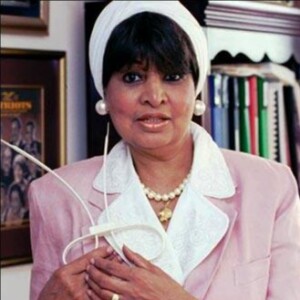
Thursday Sep 15, 2022
Thursday Sep 15, 2022
Biographical Bytes from Bala: Laurel Hill West Stories #012
Cynthia DeLores Tucker was a Philadelphia born and raised champion of Civil Rights in the 1960s and 1970s and worked closely with such icons as Martin Luther King Jr., Rosa Parks, Shirley Chisholm, and Cecil B. Moore. She chose to spend the last years of her life fighting what she saw as the pornography of gangsta rap. She was vilified by the music community, which spared no words in trying to show how sad and out-of-date her thinking was. She now lies in an unmarked grave at Laurel Hill West in Bala Cynwyd.
Join our email list to get the latest on episode releases, special events, and more: http://eepurl.com/idNN1X
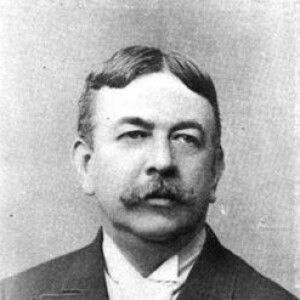
Monday Sep 05, 2022
Monday Sep 05, 2022
All Bones Considered: Laurel Hill Stories #042: Robert Patterson, James Snowden & Augustus Goodyear Heaton – Mint Condition: Laurel Hill’s Coinage Connections, part 4
Augustus Goodyear Heaton was a coin collector who wrote doggerel poetry about his collection. He was also an accomplished painter, as one of his works hangs in the U.S. Senate
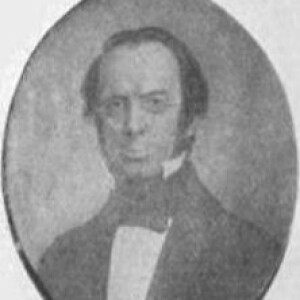
Sunday Sep 04, 2022
Sunday Sep 04, 2022
All Bones Considered: Laurel Hill Stories #042: Robert Patterson, James Snowden & Augustus Goodyear Heaton – Mint Condition: Laurel Hill’s Coinage Connections, part 3
James Ross Snowden oversaw the minting of commemorative coins which were sold to help support the expenses of running the mint. His nephew Archibald took over where he left off.
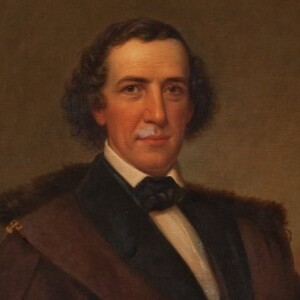
Saturday Sep 03, 2022
Saturday Sep 03, 2022
All Bones Considered: Laurel Hill Stories #042: Robert Patterson, James Snowden & Augustus Goodyear Heaton – Mint Condition: Laurel Hill’s Coinage Connections, part 2
Robert Patterson and his son Robert Maskell Patterson were two of the innovative early mint directors that kept it from failing.
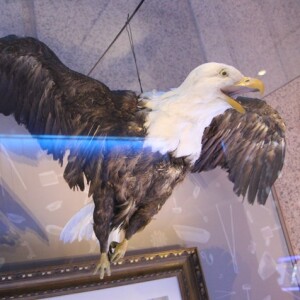
Friday Sep 02, 2022
Friday Sep 02, 2022
All Bones Considered: Laurel Hill Stories #042: Robert Patterson, James Snowden & Augustus Goodyear Heaton – Mint Condition: Laurel Hill’s Coinage Connections, part 1
If you live in Philadelphia, you know about the Philadelphia mint at 5th and Arch. This is our 4th mint in Philadelphia. The first opened in 1792 just a few hundred feet away from the current one. Literally billions of coins have been pressed in its highly efficient, highly secure building. Thousands of Philadelphians have worked at the mint, and many of them served as either Director or Superintendent.

Thursday Sep 01, 2022
Thursday Sep 01, 2022
The United States Mint has been in Philadelphia since 1792. It has produced billions of coins, from half-pennies to 20-dollar gold double eagles. Many of the early officers were Philadelphians. In this podcast, you will hear about doubloons and trimes, Peter the eagle, the California gold rush and Colorado's Comstock lode, greenbacks, Gresham's law, and more. And you will hear some bad poetry. Think of this podcast as a four-parter. 1) Development of the Mint2) Mint Directors Robert Patterson (father) & Robert Maskell Patterson (son)3) Mint Director James Ross Snowden (uncle) & Mint Supervisor A. Loudon Snowden (nephew)4) Painter, poet, playwright, and numismatist Augustus Goodyear Heaton
Join our email list to get the latest on episode releases, special events, and more: http://eepurl.com/idNN1X
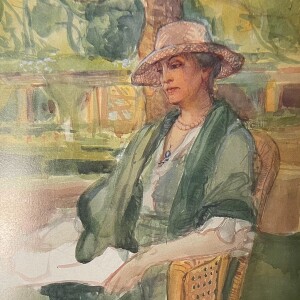
Monday Aug 15, 2022
Monday Aug 15, 2022
Biographical Bytes from Bala: Laurel Hill West Stories #011
This is a story about mutual love and respect among four women at the turn of the 20th century. All students of art know of the Red Rose Girls - illustrators Jessie Willcox Smith and Elizabeth Shippen Green and muralist Violet Oakley. They became masters of their craft because of a fourth woman, Henrietta Cozens, who served as their mother, wife, nurse, gardener, cook, and muse. She is interred at Laurel Hill West. Without her, it is unlikely the Red Rose Girls would have existed.
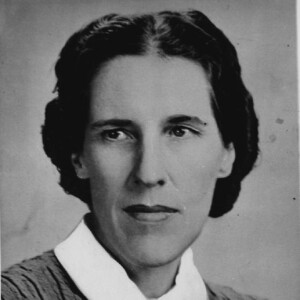
Thursday Aug 04, 2022
Thursday Aug 04, 2022
All Bones Considered: Laurel Hill Stories #041: Harry, Cecil & Kitty – Three Remarkable Drinkers, part 3
Catherine "Kitty" Drinker Bowen made a career writing award-winning history books and biographies, despite a lack of training in history or in literature. She was also a superb violinist.
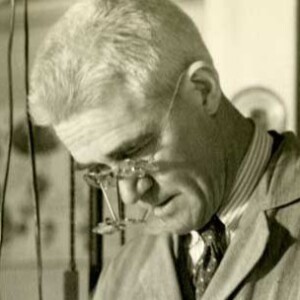
Wednesday Aug 03, 2022
Wednesday Aug 03, 2022
All Bones Considered: Laurel Hill Stories #041: Harry, Cecil & Kitty – Three Remarkable Drinkers, part 2
Cecil Kent Drinker, MD, was founder of the Harvard School of Public Health and with his wife Dr. Katherine Rotan Drinker became primary investigator of the "Radium Girls".
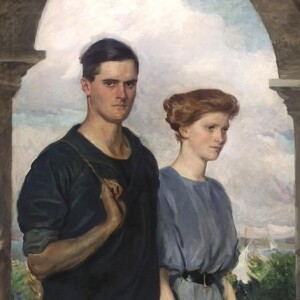
Tuesday Aug 02, 2022
Tuesday Aug 02, 2022
All Bones Considered: Laurel Hill Stories #041: Harry, Cecil & Kitty – Three Remarkable Drinkers, part 1
Henry Sandwith “Harry” Drinker was a lawyer extraordinaire, amateur musician par excellence, and rescuer of the von Trapp family. His collection of choral music is available for whomever wants to borrow it from the Philadelphia Library.

Monday Aug 01, 2022
Monday Aug 01, 2022
Henry Sandwith "Harry" Drinker was a brilliant Philadelphia lawyer and a famed musicologist who befriended the von Trapp family when they arrived at Ellis Island. His wife Sophie Hutchinson Drinker was one of the founders of women's musicological and gender studies.
Cecil Drinker, MD, was a gifted physiologist who published more than 250 papers and did the original studies on The Radium Girls. His wife Katherine Rotan Drinker, MD, was his lifelong partner in research and publications.
Catherine "Kitty" Drinker Bowen was an accomplished amateur violinist who wrote best-selling and prize-winning biographies and history tomes, although she never earned a college degree.
Three more members of the Drinker family for you know, all buried together on a hillside at Laurel Hill West. Plus, you will learn about the iron lung, the Philadelphia origins of the Book-of-the-Month Club, and an amateur choir of 150 voices that gathered every Sunday evening for 30 years without ever performing in public. It's another jam-packed episode of All Bones Considered: Laurel Hill Stories.
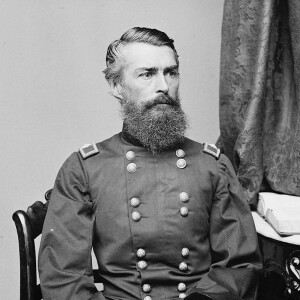
Friday Jul 15, 2022
Friday Jul 15, 2022
Biographical Bytes from Bala: Laurel Hill West Stories#010
In the mid-19th century, Philadelphia-born Herman Haupt was probably the top railroad engineer in the country - and he knew it. During the Civil War, his mastery of the rails provided the Union Army with thousands of tons of supplies, saved hundreds of lives, and may have preserved the Union’s victory at Gettysburg. Except to railroad buffs, he is little remembered today.

Monday Jul 04, 2022
Monday Jul 04, 2022
All Bones Considered: Laurel Hill Stories #040: William Short, William Duane & William Drayton – I’m Just a Bill. Friends of Thomas Jefferson, Part 1, Story 3
COL William Drayton was a Unionist from South Carolina and a veteran of the War of 1812. His father, a Carolina plantation owner, exchanged dozens of letters with Jefferson on many topics, especially agriculture.
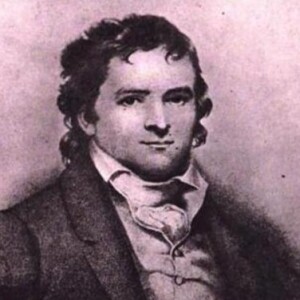
Sunday Jul 03, 2022
Sunday Jul 03, 2022
All Bones Considered: Laurel Hill Stories #040: William Short, William Duane & William Drayton – I’m Just a Bill. Friends of Thomas Jefferson, Part 1, Story 2
William Duane was a radical and the publisher of the Philadelphia Aurora which helped get Jefferson elected President against Federalist John Adams in 1800.
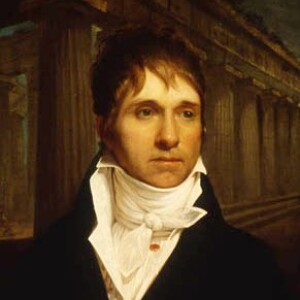
Saturday Jul 02, 2022
Saturday Jul 02, 2022
All Bones Considered: Laurel Hill Stories #040: William Short, William Duane & William Drayton – I’m Just a Bill. Friends of Thomas Jefferson, Part 1, Story 1
William Short received the first appointment to public office that was conferred under the Constitution of the United States. Jefferson thought so much of Short that he happily called him “my adoptive son.”

Friday Jul 01, 2022
Friday Jul 01, 2022
William Short was the first appointment to public office conferred under the Constitution of the United States. Thomas Jefferson thought so much of him that he happily called him "my adoptive son."
William Duane was the radical publisher of the "Philadelphia Aurora" who helped get Jefferson elected President against Federalist John Adams in 1800.
Colonel William Drayton was a veteran of the War of 1812 and a Unionist from South Carolina whose father had exchanged dozens of letters with Jefferson on many topics, especially agriculture.
Welcome to All Bones Considered: Laurel Hill Stories podcast #040 for July 2022 - Friends of Thomas Jefferson, Part 1: I'm Just a Bill.
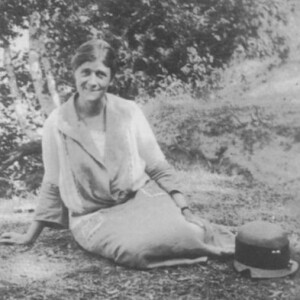
Wednesday Jun 15, 2022
Wednesday Jun 15, 2022
Biographical Bytes from Bala: Laurel Hill West Stories #009
Helen Bradford Thompson turned the understanding of gender roles on its head. Her groundbreaking work at the turn of the 20th century, summarized in her PhD thesis "The Mental Traits of Sex," exploded on the psychology scene like nothing that had come before it. And yet the name Helen Bradford Thompson Woolley was little remembered for decades, only recently being rediscovered because of the blossoming of feminist studies. She is interred at Laurel Hill West.
Join our email list to get the latest on episode releases, special events, and more: http://eepurl.com/idNN1X
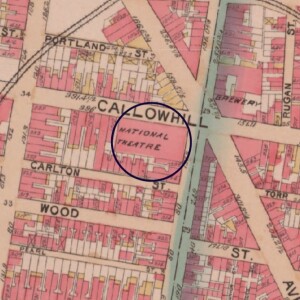
Sunday Jun 05, 2022
Sunday Jun 05, 2022
All Bones Considered: Laurel Hill Stories #039: Perot & Morris, Beer at the Centennial, Louis Bergdoll & Daniel Archer – In Heaven There Is No Beer – Some Tales of Fermented Beverages, part 4
Daniel Archer was a local haberdasher who liked to hang around a local bar and flirt with actresses who were performing in a nearby theater. A beer pitcher was his downfall.
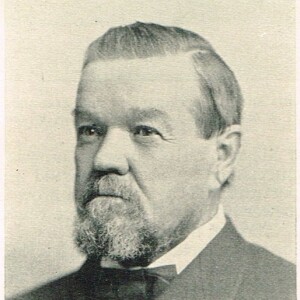
Saturday Jun 04, 2022
Saturday Jun 04, 2022
All Bones Considered: Laurel Hill Stories #039: Perot & Morris, Beer at the Centennial, Louis Bergdoll & Daniel Archer – In Heaven There Is No Beer – Some Tales of Fermented Beverages, part 3
Even though Louis Bergdoll was one of the most respected brewers in the country, his surname became reviled because of a grandson who was the most hated draft dodger during the Great War.
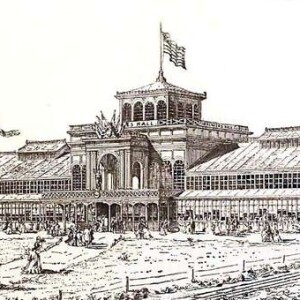
Friday Jun 03, 2022
Friday Jun 03, 2022
All Bones Considered: Laurel Hill Stories #039: Perot & Morris, Beer at the Centennial, Louis Bergdoll & Daniel Archer – In Heaven There Is No Beer – Some Tales of Fermented Beverages, part 2
Philadelphia has a section called Brewerytown, where people live in what used to be breweries. The 1876 Centennial brought millions of people to the city who learned about the delights of Philadelphia Beer.
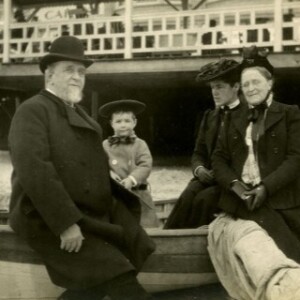
Thursday Jun 02, 2022
Thursday Jun 02, 2022
All Bones Considered: Laurel Hill Stories #039: Perot & Morris, Beer at the Centennial, Louis Bergdoll & Daniel Archer – In Heaven There Is No Beer – Some Tales of Fermented Beverages, part 1
How did breweries start in our green country town? Where were they located? Who drank it? And how did one brewery stay in one family for ten generations? Here are your answers.

Wednesday Jun 01, 2022
Wednesday Jun 01, 2022
Beer has a long history in our country, and Philadelphia has played a surprisingly strong role in its development. There's even a neighborhood called Brewerytown, and hundreds of Philadelphians live in apartments that used to be breweries.
This episode talks about beer from different perspectives. How did breweries start in our green country town? Where were they located? Who drank it? How did one brewery stay in one family for ten generations? What happened at the Centennial Exposition to spread the word about Philadelphia beer? Even though Louis Bergdoll was one of the most respected brewers in the country, why did his surname become reviled because of one of his grandsons? And we'll finish with the story of a legendary Philadelphia bar fight and its aftermath. All this – and more – in the June edition of All Bones Considered: Laurel Hill Stories – In Heaven There Is No Beer.
Join our email list to get the latest on episode releases, special events, and more: http://eepurl.com/idNN1X
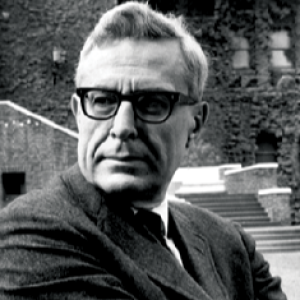
Sunday May 15, 2022
Sunday May 15, 2022
Biographical Bytes from Bala: Laurel Hill West Stories #008
Loren Eiseley grew up in a troubled family on the plains of Nebraska and drifted across the American West on trains during the Great Depression. Yet during his life he earned 36 honorary degrees and was one of the most respected researchers, educators, and writers in the country. He was Benjamin Franklin Professor of Anthropology and History of Science, and the curator of the Early Man section at the University of Pennsylvania Museum. Like Henry David Thoreau, his writings on man and nature are treasured to this day. When Eiseley died in 1977, many people felt as though they had lost a close personal friend, even if they never met him. Science-fiction author Ray Bradbury remarked that he "is every writer's writer, and every human's human ... One of us, yet most uncommon ..."
Join our email list to get the latest on episode releases, special events, and more: http://eepurl.com/idNN1X
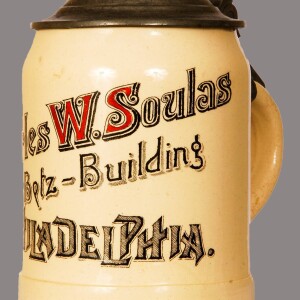
Thursday May 05, 2022
Thursday May 05, 2022
All Bones Considered: Laurel Hill Stories #038: Through the Looking Glass – Some Lewis Carrol Connections, part 4
Charles Soulas has one of the more striking grave memorials - a woman who looks like she's ready to take your meal order. Soulas ran a restaurant near city hall where local movers and shakers met over mock turtle soup.
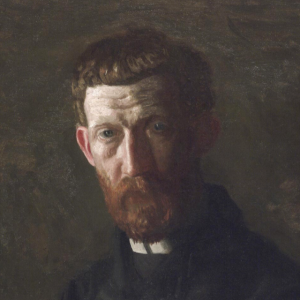
Wednesday May 04, 2022
Wednesday May 04, 2022
All Bones Considered: Laurel Hill Stories #038: Through the Looking Glass – Some Lewis Carrol Connections, part 3
Arthur Burdett Frost was a highly respected Philadelphia illustrator and lithographer whom Lewis Carroll selected to provide illustrations for his poetry book Rhyme & Reason. They had a falling out when Carroll requested some unusual photographs from Frost.








